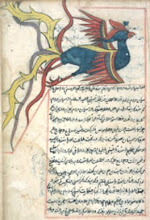
While the rest of the world begins a week of solemn ceremonies and interminable platitudes to mark the 100th anniversary of the signing of the German Armistice in the West, Bluepepper feels it appropriate to mark the 100th anniversary today of the death of one of history's great soldier poets and one of the great prophetic voices of the Twentieth Century. Lieutenant Wilfred Owen MC was killed while attempting to cross the Sambre-Oise Canal in North-Eastern France and was promoted to Lieutenant posthumously. In one of those cruel ironies with which the war was replete, Owen's mother received the telegram informing her of her son's death while the bells tolled the signing of the Armistice across London. He was one of 20 million soldiers and civilians killed during the war across vast swathes of Africa, Europe, the Middle East and Persia. Those four years between 1914 and 1918 are perhaps the most tragic and costly example in human history of the cost that can be borne by people when their leaders fail to meet the demands of their office, scrambling for justifications for the damage when the damage has already been done. It should also be borne in mind while we are laying our wreathes next week that a further 70 million people perished in the ensuing two years from disease, famine, civil war and unrest, all as a direct result of the war and the poor decisions made in the northern summer of 1914. Lest we Forget.
The Parable of the Old Man and the Young
So Abram rose, and clave the wood, and went,
And took the fire with him, and a knife.
And as they sojourned both of them together,
Isaac the first-born spake and said, My Father,
Behold the preparations, fire and iron,
But where the lamb for this burnt-offering?
Then Abram bound the youth with belts and straps,
and builded parapets and trenches there,
And stretchèd forth the knife to slay his son.
When lo! an angel called him out of heaven,
Saying, Lay not thy hand upon the lad,
Neither do anything to him. Behold,
A ram, caught in a thicket by its horns;
Offer the Ram of Pride instead of him.
But the old man would not so, but slew his son,
And half the seed of Europe, one by one.
(Wilfred Owen, 1893 - 1918)






